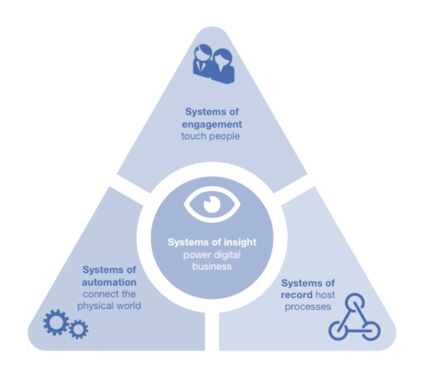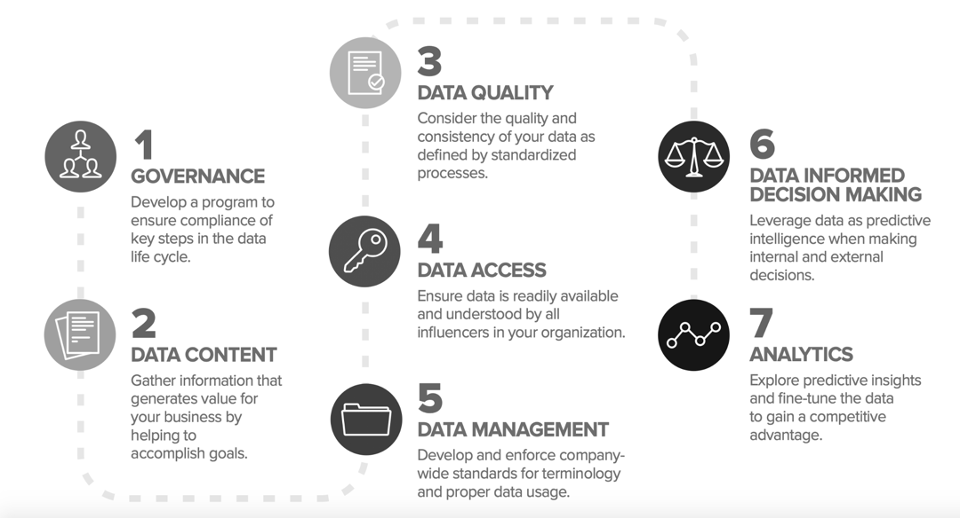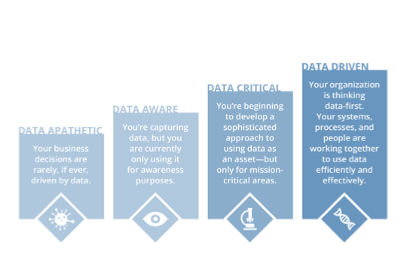Data persists while organisational structures vary over time.
Data describes the interactions that the organisation has with its customers, suppliers, partners and staff. At this level, data is transactional. However the true value of data is as a corporate asset, particularly when analysis provides knowledge and insight for decision making.
Systems of Data
Data describes your organisation, is interacted with in many ways and persists beyond functional structures:

Systems of Record are the primary system & data repository of a company, such as a finance ledger, a customer database or an HR system.
Systems of Engagement are the systems that are used to interact with consumers and collect data, such as websites, applications or chatbots.
Systems of Automation such as Artificial Intelligence, Machine Learning & Next Best Action extend human capability.
Systems of Insight refers to the technology which aims to support and improve the customer experience through the consumption, collection, and analysis of data from the combined sources of traditional 'systems of record' and 'systems of engagement'.
Key to becoming a customer-centric organisation is to become exceptionally good at Systems of Engagement. These are the systems where your interaction with your customers happen, and these systems need to be absolutely in the moment, with an ability to rapidly change to be in the next moment. Consider this characteristic against a system of record, which tend to collect data which doesn't change very often.
Leading companies use data to create value and increase productivity. An effective approach to data maturity takes a broad view, giving you complete and actionable insight on your progress towards being data-driven. Data Governance frameworks, such as pictured below, will give you a roadmap of action.

A maturity assessment will tell you where you are on that journey.

Understanding data within an organisation is vital to its operation, success and survival.
Organisational Data is a major topic, so this post is a short reminder of what needs to be considered.
Some data terms:
Data Governance manages data as an asset.
A Data Steward is responsible for the fitness of data elements within Data Governance.
Data Science is the application of analytics to data, which drives innovation.
